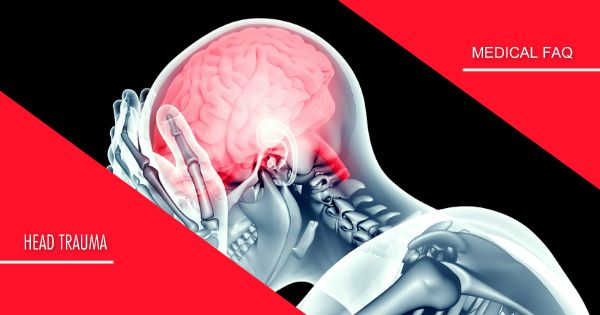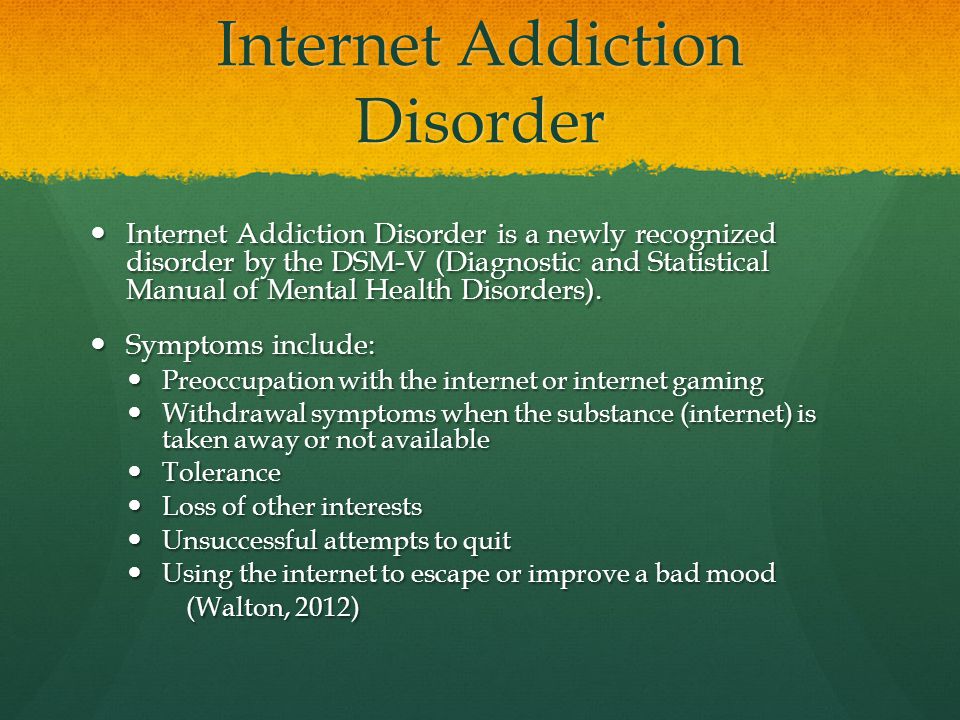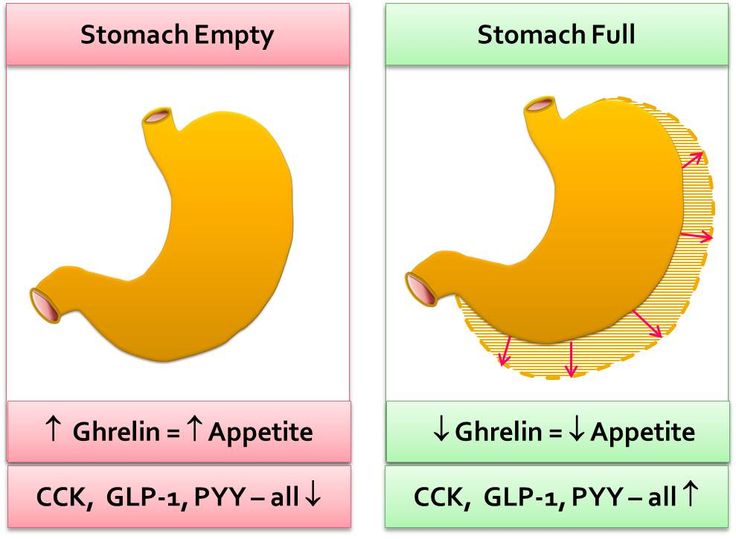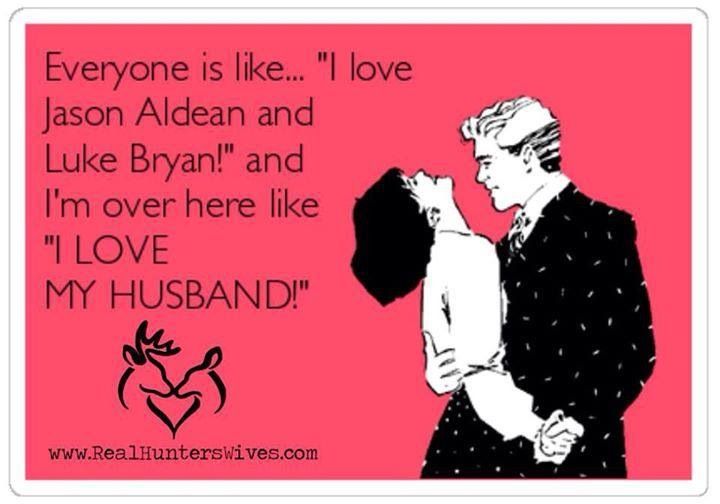Guilt is a useless emotion
Worry and Guilt: The Useless Emotions
"If you can solve your problem, then what is the need of worrying? If you
can't solve it, then what is the use of worrying?" —Shantideva, 8th century C.E., Indian Buddhist sage
"Experience is the name everyone gives to their mistakes." —Oscar Wilde
Source: Alon/flickr Creative Commons
Worry and guilt are opposite sides of a wooden nickel—two useless emotions facing different directions. Worry looks ahead, seeing threat and disaster at every turn. Guilt looks behind, imposing self-blame for perceived misfortunes and disappointments.
Before we consider some Minute Therapist suggestions for sending worry and guilt packing, let’s recap some basic principles:
- Behind every disturbing emotion is a disturbing thought.
- Disturbing thoughts contain logical flaws or distortions, such as being too harsh on yourself, exaggerating the importance of negative events, focusing only on the negatives, etc.
Merely thinking something doesn’t make it so.
- To control negative emotions, you need to take control of the thoughts that lay behind them.
- Capturing disturbing thoughts involves monitoring or recording your inner speech or self-talk.
- Once you capture a disturbing thought banging around in your head, examine it in the light of evidence, asking yourself questions such as, "Why must I think this way? What evidence supports the validity of this thought? What evidence disputes it? Are there other ways of thinking about ______?" Expose the logical flaws and inconsistencies in each disturbing thought.
- Strike back against offending thoughts with a rational counterpunch. Write down on an index card (or use the note-keeping function on a smart phone) a rational self- statement or coping thought—basically a talking point to yourself—for each offending thought. Keep these coping cards close at hand so you can remind yourself to challenge and dispute irrational thinking wherever and whenever it occurs.

- To strengthen more adaptive thinking, practice your rational self-statements several times a day, such as when leaving the house in the morning, before taking a shower, or before switching on the TV.
- Substitute rational self-statements whenever you start muttering a disturbing thought to yourself or when you experience a disturbing emotion.
- In sum, Think (what’s going through your mind), Stop (repeating negative thoughts to yourself), and Substitute (rational thoughts in place of anxious thoughts, depressing thoughts, angering thoughts, worrying thoughts, and “guilting” thoughts).
But Isn’t it Rational to Worry?
Doesn't it make sense to worry? Don’t bad things in life happen often enough to give pause to even the most resolute among us? Doesn't worry prepare us to deal more effectively with life's eventual losses and tragedies?
The fact that bad things happen and that you should prepare yourself to face adversity doesn’t mean that worry serves any constructive purpose. You needn't be motivated by worrisome feelings to protect your family with a life insurance policy or to draft a will. Worry is not needed for preparedness.
You needn't be motivated by worrisome feelings to protect your family with a life insurance policy or to draft a will. Worry is not needed for preparedness.
Worry is the excess emotion that remains after all reasonable measures are taken to safeguard your family and personal interests. Worry may actually drive you to make bad decisions, such as in the case of adopting any new health fad that comes along irrespective of evidence supporting its effectiveness or potential for harm. Worrisome thinking increases anxiety but does not help you focus on finding effective solutions.
Like anxiety and fear, worry is an emotion that derives from the appraisal of threat. With worry, however, the threat lies in the indefinite future, not the present reality. Whereas fear may be adaptive when it alerts us to signs of danger we see before us, what good comes from worrying about some possible future event? Ah, you may wonder, doesn’t worrying help us remain vigilant in uncertain and apprehensive times. But do we really need to worry to remain vigilant? Can’t we take reasonable precautions to deal with threats we face in life without having to suffer the emotional baggage of constantly worrying? Certainly, we can. In effect, worriers operate according to a set of rules that follow a twisted logical path:
But do we really need to worry to remain vigilant? Can’t we take reasonable precautions to deal with threats we face in life without having to suffer the emotional baggage of constantly worrying? Certainly, we can. In effect, worriers operate according to a set of rules that follow a twisted logical path:
- Terrible things happen to people.
- These terrible things can happen anytime.
- I must be constantly on guard at all times to prepare for these terrible things.
- I must never let down my guard lest some terrible thing happen when I least expect it.
- Because of (1), (2), (3) and (4), I can only feel somewhat safe and secure if I maintain a watchful attitude at all times and consider all the possible things that can go wrong, over and over again in my mind.
The chronic worrier is locked into a way of thinking in which worrying is a magic charm that offers partial protection against the terrible things that can go wrong. Worrisome thinking has two basic cognitive components:
- Expecting something bad to happen; and
- Lacking confidence in your ability to handle the impending threat.

Here's why worry is a useless emotion:
It is rational to be aware of potential threats that might affect your physical, emotional, or financial well-being. Being sensitive to cues signaling danger helps us maintain a state of preparedness. But worry simply adds to our emotional woes without helping us prepare for threats we might face. If you are facing an important examination or business meeting, it makes sense to prepare as best you can. Worry adds nothing to preparedness, but it does add excess emotional baggage that, ironically, can heighten anxiety and interfere with your ability to function at your best. In other words, why worry?
We can liken worrying to a chemical formula consisting of one part perception of threat and another part perceiving yourself as inadequate to deal with the threat. It's as though the worrier is thinking, "Something terrible is going to happen and I won't be able to cope with it." The logical consequence is that the worrier feels helpless, sensing impending doom but feeling unable to do anything about it, except of course, to worry about it.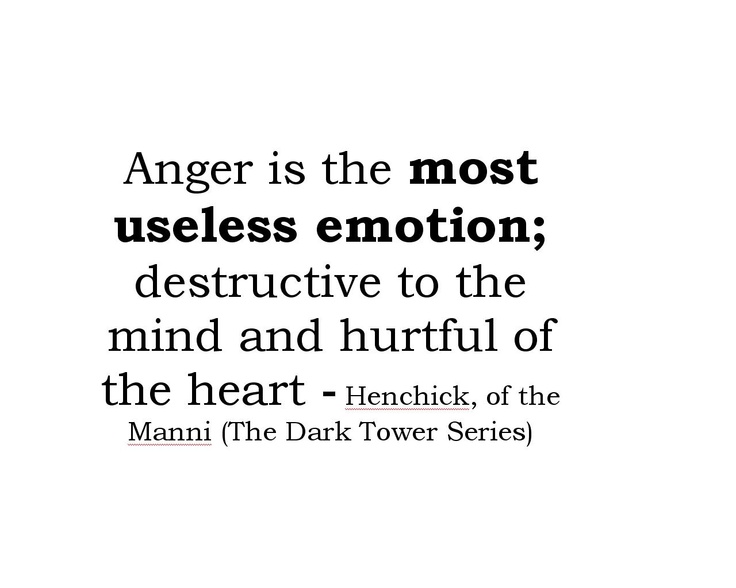
Are You a Chronic Worrier?
Let us count the ways:
- Do you worry about everything little thing?
- Is there never a day that goes by without having something to worry about?
- When you are having a good time, is there always some worry lurking in the back of your mind?
- Are you overconcerned with making sure everything is exactly the way it's supposed to be before you can feel relaxed?
- Do you find yourself thinking too much about common behaviors most people take for granted, such as how well you're driving the car, or even whether you are chewing your food correctly, or whether your clothes are perfectly matched?
- Does the idea of making a mistake bother you more than most people?
- Are you constantly watching yourself or scanning your body for signs of ill health?
- Do you become overly concerned when events don't go according to plan and you just can’t accept things as they are? (Do you obsess about your newly installed kitchen floor because the color does not have quite the hint of apricot that you thought it would?)
In our next blog, we look at steps to break out of the worry cycle. Then we’ll take a look at the other useless emotion—guilt.
Then we’ll take a look at the other useless emotion—guilt.
© 2017 Jeffrey S. Nevid
Why Guilt is a Pointless Emotion and How to Move Past It
- Share
- Tweet
- Pin
The majority of guilt experienced by human beings is not actually the result of horrible things said humans have done. Most of it takes the form of self-doubt, self-criticism, and self-punishment. Granted, sure, some of us do bad things. Killing another person would be one prime example, as would cheating, lying, stealing, etc. But of course, each and every one of those actions is mired in a unique context that serves to dictate the already highly subjective notions of good and bad.
Plus, remorse over having harmed someone and guilt are not the same, because while remorse may indeed be a marker of humanity, guilt is essentially a worthless emotion. Most of our guilt is self-directed, such as when we fail to live up to our own or another’s expectations (a fine line).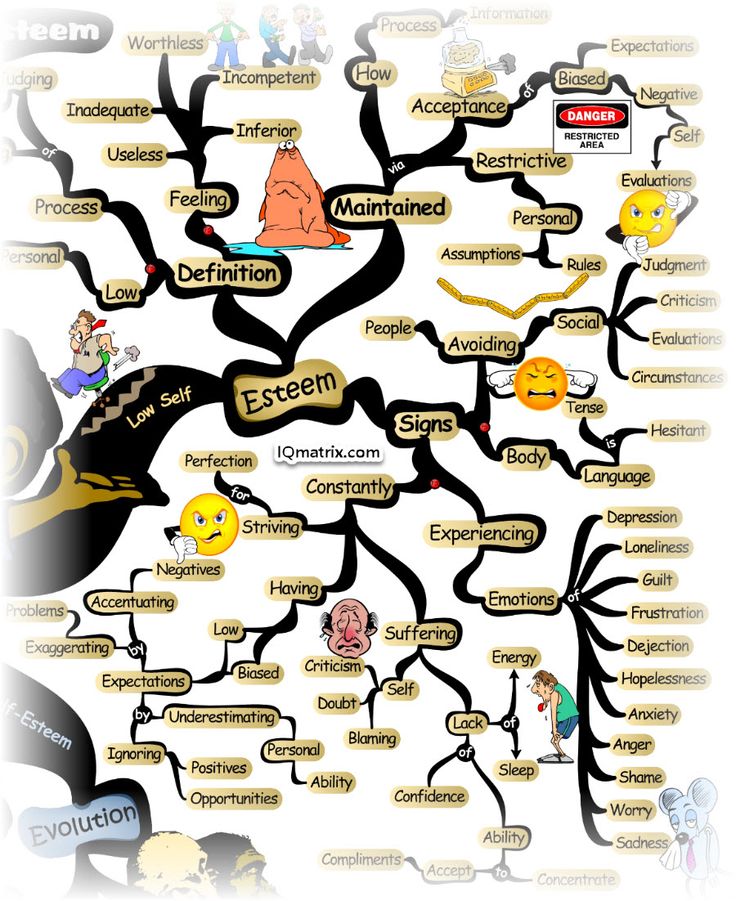 This might be related to work, love, family, or anything else.
This might be related to work, love, family, or anything else.
When you’re relaxing, do you feel guilty for not working? When you’re working, do you feel guilty for not being home with your family? When you’re with your partner, do you feel guilty for not being with your friends more, or vice versa? Most of us are riddled with guilt in subtle ways we’re barely aware of. No matter what the source, guilt can become a constraining emotional backdrop, coloring everything we do. It may even seem that one’s sense of guilt (often conflated with one’s sense of duty) is what stirs one to action, makes one a better person. Indeed, research shows that people prone to guilt work harder and are seen as better leaders. And they’re also seen as better friends, lovers and employees.
The thing is, no matter what it looks like on the outside, over time, guilt becomes debilitating and toxic. While it may feel like guilt is an important reminder of our responsibilities, in reality it’s accomplishing just the opposite — it’s a deadweight that keeps us from stepping into our full power and potential.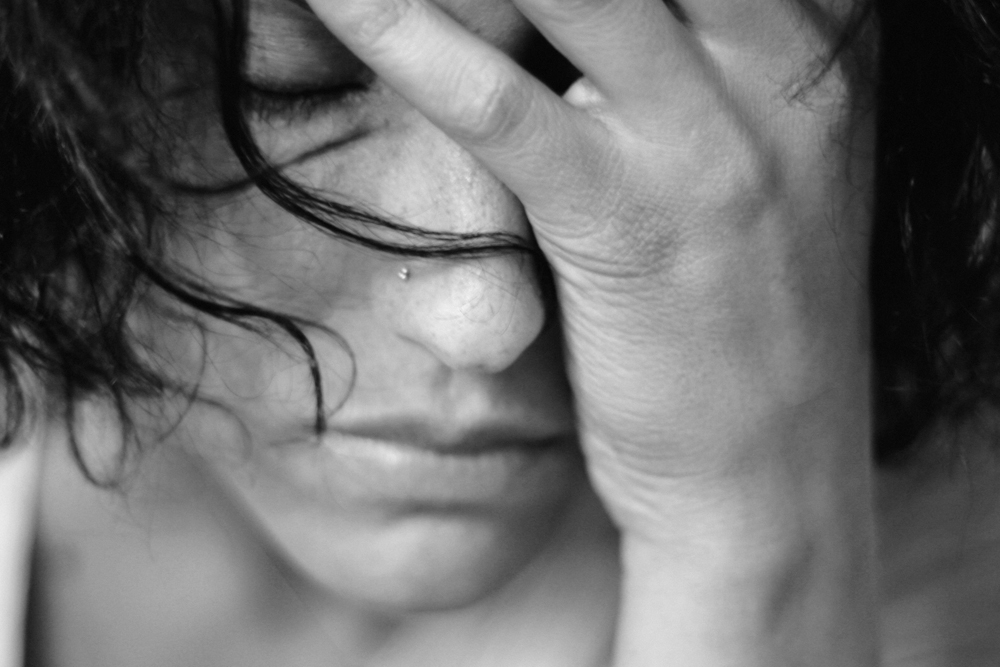 Worried about holding yourself accountable? Forgiving yourself helps you move on and increase personal accountability, while guilt doesn’t accomplish much of anything.
Worried about holding yourself accountable? Forgiving yourself helps you move on and increase personal accountability, while guilt doesn’t accomplish much of anything.
Here’s how to stop feeling guilty (easier said than done, yes, but we have to start somewhere):
Don’t blow things out of proportion
If you were on the outside, looking in, would your all-encompassing feelings of guilt, shame, or other paralyzing emotions fit the alleged crime? Probably not.
Don’t self-identify based on something you’ve done
You’re responsible for your actions, sure, but even if you’ve done something bad, that doesn’t make you a qualitatively bad person. It just makes you human.
Self-forgiveness
Counterintuitive though it may feel to the anxiety-ridden among us, forgiving yourself actually makes you a better person. Thinking you’re shit makes you kinda shit, a la self-fulfilling prophecy.
Apologize…if an apology is called for
If indeed your guilt is directed at a human other than you, say you’re sorry for whatever it is you’re sorry for. Saying it once is enough if you mean it. And if you say it, be sure you mean it.
Saying it once is enough if you mean it. And if you say it, be sure you mean it.
Learn the lessons
Life is punctuated with endless disharmonies so that we might glean little morsels of helpful self-knowledge and be on our merry way, all the wiser. Make a list of any proactive thing you can do to improve the situation and stop bearing the unnecessary, deeply counterproductive emotional burden known as guilt.
Tags
- challenging
- how-to guide
- self
- self-development
← Prev Post Next Post →
Maya Khamala
Maya Khamala is a freelance writer and editor interested in gender, race, sexuality, anxiety, and the great power of humour.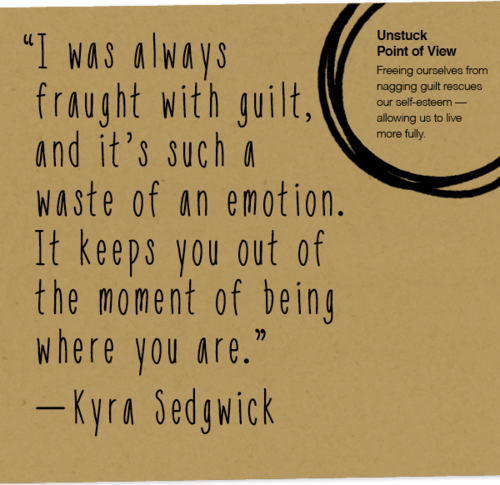 She likes to write poems in her free time.
She likes to write poems in her free time.
Chapter V Useless emotions - guilt and anxiety. How to get rid of an inferiority complex
Chapter V
Useless emotions - guilt and anxiety
If you think that through long experiences and worries you can somehow influence events in the past or future, you live on another planet with a completely different system of realities.
Of all the emotions that accompany a person throughout his life, the two most useless are guilt for what he has done and worry about what might be done. Here they are, these unnecessary emotions - Worry and Guilt, Guilt and Worry! If you examine these two error zones, you can understand how they are interconnected; in fact, they can be considered as opposite ends of the same zone.
That's the whole point. Guilt causes a person to waste moments of the present, being plunged into a state of inactivity by worries about his behavior in the past, and anxiety is an adaptation that forces him to be inactive in the present when thinking about something that might take place. in the future - often such "something" is out of control. You can make this quite clear if you try to feel guilty about an event that is yet to happen, or worry about something that has already happened. And although one of these reactions refers to the future, and the other is turned to the past, nevertheless they both serve the same purpose, namely, to keep the individual in a state of depression or inactivity in his present. Robert Jones Bourdette wrote in Golden Day:
in the future - often such "something" is out of control. You can make this quite clear if you try to feel guilty about an event that is yet to happen, or worry about something that has already happened. And although one of these reactions refers to the future, and the other is turned to the past, nevertheless they both serve the same purpose, namely, to keep the individual in a state of depression or inactivity in his present. Robert Jones Bourdette wrote in Golden Day:
It is not the experiences of today that drive a person to madness, but remorse for what happened yesterday and fear of what tomorrow may bring.
Manifestations of feelings of guilt and anxiety can be encountered anywhere, they can be observed in literally every person with whom we have to communicate. The world is inhabited by beings who disgust themselves with things they shouldn't have done, or who are afraid that things may or may not happen. Most likely, you are no exception. And if your areas of anxiety and guilt are extensive, they need to be eradicated, thoroughly cleaned and sterilized once and for all. Wash away those tiny parasites that are infesting so many areas of your life!
Wash away those tiny parasites that are infesting so many areas of your life!
Guilt and anxiety seem to be among the most widespread forms of suffering in our culture. A guilty person focuses on an event in the past, feels depressed or annoyed about something he did or said, and spends moments of the present worrying about an act that has gone into the past. And being in such a state, he spends precious moments of his being, haunted by haunting thoughts about the upcoming event. But whether he looks back or looks forward, the result is the same. He cuts the present moment out of his life. Robert Bourdette's Golden Day is about today. The writer sums up the futility of guilt and anxiety with these words: There are two days in any week that I never worry about. Two carefree days, sacredly left free from fears and forebodings. One of them is yesterday ... The other, for which I do not feel anxiety, is tomorrow.
This text is an introductory fragment.
Chapter 6. Guilt
Chapter 6. Guilt DAVID Sometimes events, even tragic ones, happen through no one's fault. No one knows why one person dies and another lives. There is a so-called "guilty of the saved", but such a reaction has no logical basis. The concept first drew
4. Grocery shopping Necessary and useless purchases
4. Grocery shopping Purchases necessary and useless Going to the grocery store can be a wonderful experience that will bring your family together. And it may turn out to be the worst thing that has happened to the baby since the separation from the placenta. The choice is essentially yours.
Chapter 4. Guilt Poison for the Soul
Chapter 4. Guilt Poison for the soul Guilt is a very common and highly uncomfortable feeling that we experience after we have done something wrong or harmed another person. From time to time we violate our own standards of behavior and as a result offend
Guilt Poison for the soul Guilt is a very common and highly uncomfortable feeling that we experience after we have done something wrong or harmed another person. From time to time we violate our own standards of behavior and as a result offend
Chapter 3 What Are the Consequences of Anxiety
Chapter 3 What are the consequences of anxiety? Business people who don't know how to deal with anxiety die young. Dr. Alexis Carrel[3] I recently got a call from a neighbor who urged me and my family to get smallpox shots. He was one of a thousand
Chapter 9 Anxiety, obsessive state Belt system
Chapter 9 Anxiety, obsession Belt system Functions of the lumbar system: ability to move attention from one object to another; cognitive flexibility; ability to adapt; switching from one thought to another; ability to see a choice; ability
1.
 Useless advice
Useless advice 1. Useless advice With the effectiveness of this "enlightenment" direction, the situation, in our opinion, is not so good. The reason for this is not the quality and reliability of the information itself, but a number of already described properties of the very sphere of living communicative
Chapter 3 Pain and Guilt
Chapter 3 Pain and guilt I write only about my experience, but watching women in the process of breaking up with their husband, I saw pain and guilt in almost everyone. They go hand in hand. PainPain is continuous and caused by absolutely everything. Empty half of the bed. His things are in the closet, which he
Redirect useless instructions
Redirect useless instructions Sometimes we assume that the pain we experience requires the construction of the most deaf fence. Instinct tells us to hide, close up: no judgments, no instructions, nothing like that - otherwise we will say goodbye. But you could
Instinct tells us to hide, close up: no judgments, no instructions, nothing like that - otherwise we will say goodbye. But you could
10 Maturity is when we feel that our concern for others is greater than our concern for ourselves
ten Maturity is when we feel that our concern for others is greater than our concern for ourselves. The last third of Einstein's life is marked by his activity in the struggle for peace. There was a powerful spiritual development of the scientist associated with the bombing of Hiroshima
Chapter 6 VINE
Chapter 6 GUILT The great Indian poet sang in Sanskrit the praise of wine: “Oh, this instrument with strings of veins! Looking at it, touching it, hearing it, you can become free even if you kill a brahmin!” And the murder of a Brahmin was considered the most serious of all sins. This tool is
This tool is
Guilt and anxiety, how to eliminate them? / psychology
Our life is full of moments of guilt and anxiety , two emotions that in most cases serve only as a distraction from the present moment. We feel guilty about what we have done and worry about what we can do if we forget about this, about the present.
We become attached to a terrible sense of guilt that prevents us from moving forward, blocking us.
Two error zones: guilt and anxiety
Guilt and anxiety are part of our error zones , and although they are two different emotions, we can actually place them at the ends of the same continuum.
Thus, when we blame ourselves for something, we waste the present by being immobilized by what happened in the past, and when we worry, we are immobilized for something that is in the future and over which we usually do not we have control. Thus, both of them coincide in that they are immobilized in the present.
Thus, both of them coincide in that they are immobilized in the present.
Remorse for what happened yesterday and fear of what tomorrow might bring us is what usually drives us crazy these days. The world is full of people who make mistakes because of things they shouldn't have done or because they're afraid of what might happen. And maybe we are no exception.
Guilt process
Society sends us messages of guilt and anxiety all the time We have been trained most of the time to find these emotions normal in our lives. But how does it happen??
Someone sends a message to remind us that we were bad people because of what we did or didn't do, felt or didn't feel, said or didn't say. We then respond by feeling bad or uncomfortable in the present. Thus we become machines or boxes of guilt.
Guilt is one of the most useless emotions.
Guilt can be one of the most useless emotions think about it We spend a lot of energy feeling guilty about what happened in the past and we are immobilized by what has already happened. And with that, we can't change anything that happened.
And with that, we can't change anything that happened.
Learning from the past
We need to know how to distinguish guilt from the past. The mistake, as we have already said, lies in the immobilization of the present, which can range from slight discomfort to the most severe depression. It prevents us from acting now, because before we will behave in a certain way.
In this state we waste energy on what has already happened to be useless and harmful to ourselves. No fault that no matter how big it is, solve or change the problem.
But learning from the past, unlike guilt, involves avoiding repeating a behavior with the intention of learning from one's mistakes without stopping oneself. Learning from our mistakes is something useful and necessary for our personal growth and development. This allows us to move forward.
Some Troubleshooting Strategies
As we have seen, guilt is a useless emotion that only serves to immobilize us and lose our present, so try to look at the past as something unchanging, which can be of great help .
Any guilt we choose will not solve the problem because we cannot change the past. Record this message in your mind, add it to your regular thought repertoire. So, little by little you will get rid of the need for guilt.
Go! Use the past as a trampoline, not as a sofa.
Try to teach the people you associate with who are trying to manipulate you with guilt that you can withstand the frustrations that your behavior causes. The result will take time to appear, but it will change when they see that they cannot make you feel guilty.
